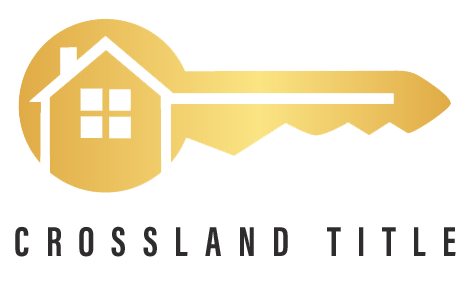What’s the best time of year to sell a home?
Consider where you’re selling a home first
Spring
In most areas, the best time of year to sell a home is during the first two weeks of May. You can expect to sell 18.5 days faster than any other month and for 5.9 percent more money. In other places, early April or June is better for home sales than May. There are pros and cons to spring home selling.
Pros
Tax refunds come in the late winter or early spring. This makes more funds available for repairs and renovations.
Warmer weather and longer days mean more home buyers go out searching for homes.
Curb appeal improves as trees, flowers, and grass bloom (and less muck gets tracked into your house).
You can get ahead of summer competition and beat the rush.
School lets out, allowing kids to finish the school year just as buyers close on a home.
The best time of year to move is coming up for buyers, so they’re more likely to purchase a home with that in mind.
Cons
It might not be the best season to sell if your weather is still rainy, snowy or muddy
Competition is fierce, so if your home is imperfect, it may be a harder sell
If you have kids, you may have to pull them out of school if your home sells quickly
The weather might be unpredictable, messing with your open houses
Neighbors might take on major renovations. Also, they may have spring events (like graduation parties) that make parking and tours harder
Summer
Like spring, summer is one of the best times of year to sell a home. In some regions, June is tops for a home closing. In fact, June 28 is the most likely day in the year to close a home, according to ATTOM Data Solutions. There are a variety of other reasons that summer is the best time of year to sell a home. But drawbacks to listing between mid-June and late August exist, too.
Pros
More daylight hours and predictable weather in most places mean more time for home showings
Time for you (and buyers) is more flexible with vacations. Also, more time after work hours showing or touring houses
Buyers have a sense of urgency to get their school-aged kids settled
There is more available data from spring home sales to use to price your home
With their buying window closing, buyers are more likely to make more competitive offers and move faster to close
Cons
Weather in some areas is very hot and not conducive to house hunting
Competition in areas where summer is prime. The selling season gets higher with buyers demanding more concessions and features
It’s vacation time, and fewer buyers may be looking for homes in your area
You may experience higher costs of showing. This is because you’ll kick up the air conditioning and maintain your yard constantly
Your kids may hate it if you keep pools and other outdoor spaces constantly show-ready and they can’t use them. Not to mention they’ll be out of school and their stuff all over your house
Professionals are busier. Finding the best real estate agent, landscapers, contractors, and others gets harder. This drives up selling costs more
Fall
Pros
Less inventory and competition from people selling family homes.
Serious buyers who couldn’t buy during spring and summer have the motivation to close before the holidays.
Costs for fixing up your home get lower. You’ll have more access to professionals to help you as their busy season ends.
Sellers can make home listing images more vivid. Do this with fall foliage and decor, making their homes stand out from the remaining competition.
Safety increases as the prime season for home burglaries end
Cons
Buyers can get more demanding if there is less competition for your home
The market slows as school starts, and people settle in for winter in some like New England and the Midwest
Colder, wetter weather and coming snow keep buyers away
In some areas, curb appeal disappears as your trees lose leaves, flowers die, and the grass grows browner
Heating costs go up as you keep your home warmer longer for house hunting
Landscapes get harder to maintain as leaves fall and foliage deteriorates
Winter
Like the cold weather, most people shiver thinking about selling their home during this time of year. It’s likely the hardest to sell a house in most areas.
But, in resort areas like Florida, Arizona, Southern Nevada, and ski towns, winter is the prime selling season. Either way, if you understand the pros and cons of selling in winter, it might be the best time of year to sell a home for you.
Pros
Highly motivated buyers who want to close before the year ends to take advantage of tax breaks
Less inventory means lower competition for buyer attention, especially in off-season markets
Relocating buyers need to find a home to start new jobs or take other opportunities in December, January or February
Top real estate agents looking for year-end sales rise to the challenge to sell your home
Giving your home a holiday feel helps buyers envision living there during that time of year
Snow can cover some of the uglier features in your yard. At least until it gets tromped into the mud
Cons
Selling in hot winter markets means more competition
Many buyers are “thrift shoppers” looking to play on seller desperation to get a deal
Curb appeal isn’t the best, and snow-covered landscapes are harder to see.
People are focused on the holidays and hibernating for winter.
Days are shorter everywhere and colder in most places in the U.S.
Moving after you sell is harder in the winter, especially around the holidays or in coldest months of the year like January and February
It’s the worst time of year for any significant renovations or repairs inspections reveal you must make
The inconvenience of keeping your home ready-to-show while enjoying the holidays, especially with kids
Understand that people successfully sell even when it’s not the best time of year to sell a home. Changes in your financial or family situation could force an immediate home listing. But those same things could force another family to come shopping.
As long as you know the pros and cons of selling during each season and in your area, you’re apt to make your home sale happen.

